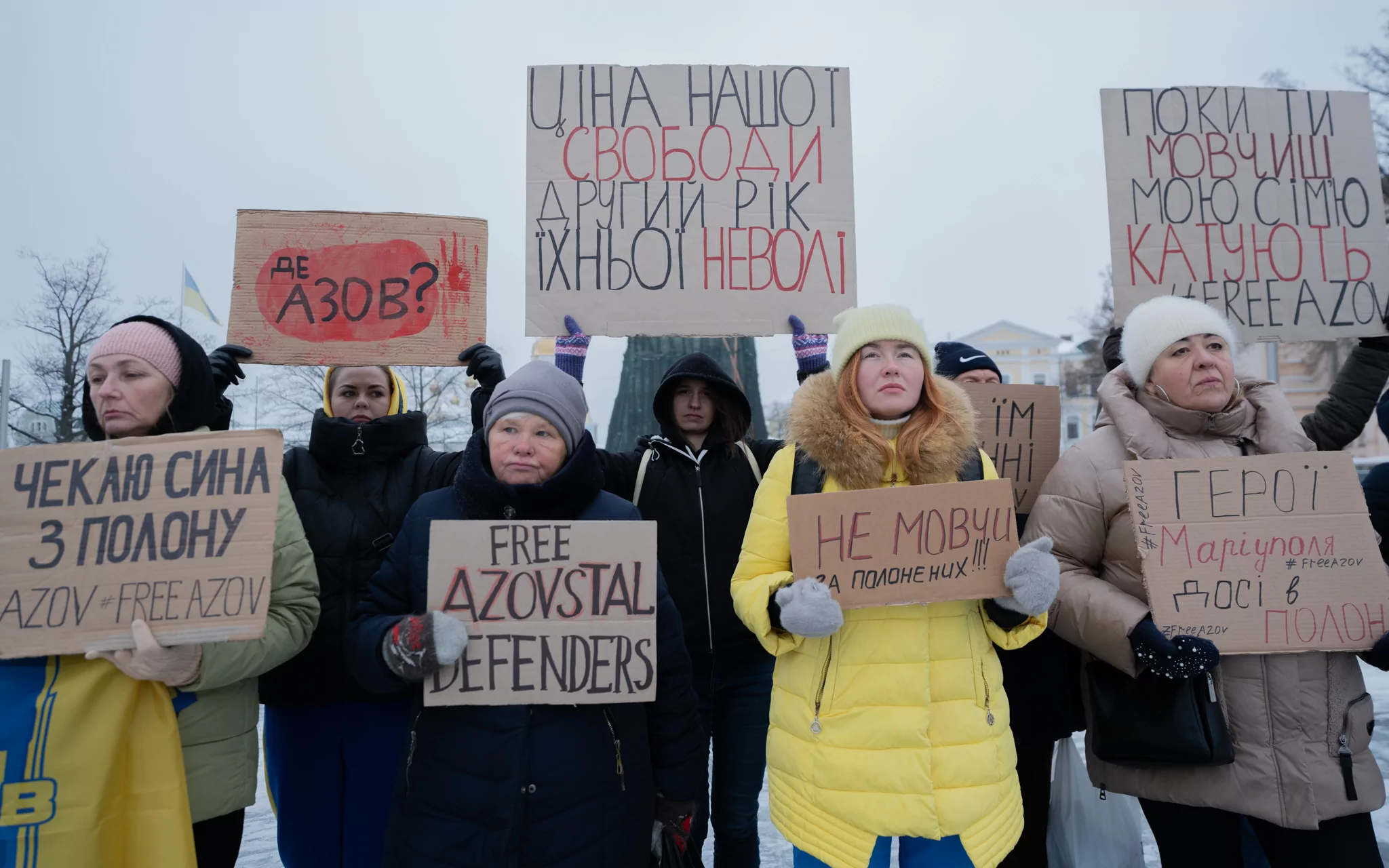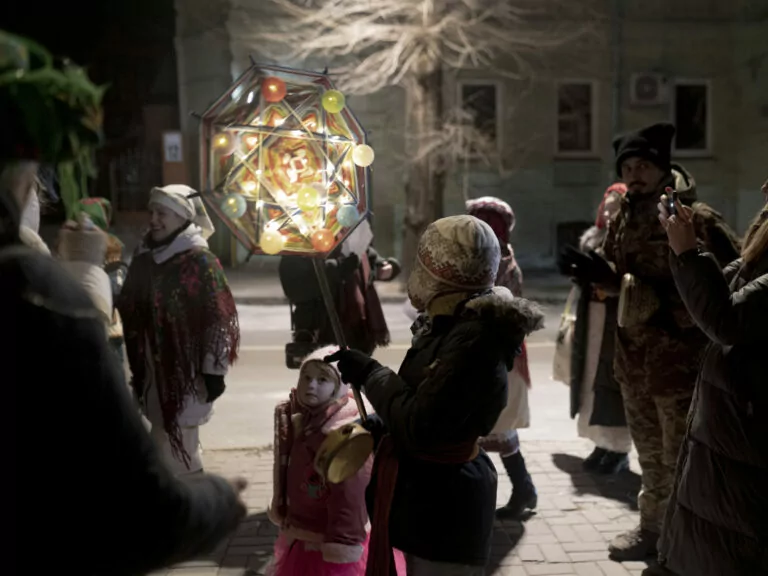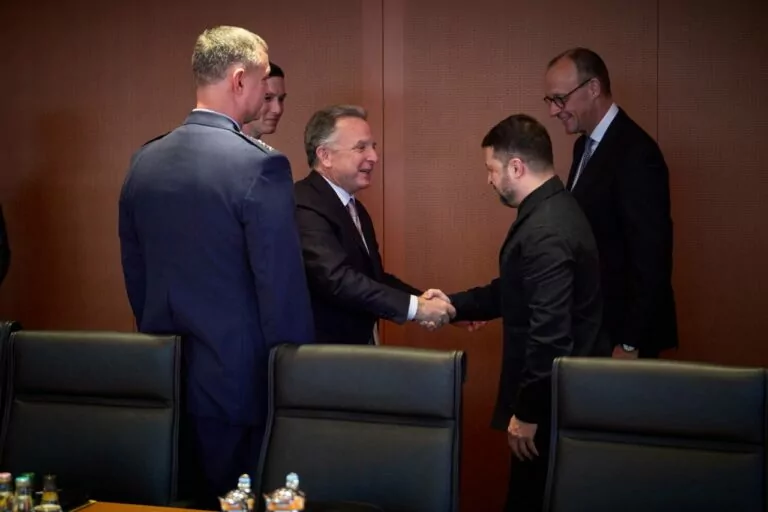KHARKIV, UKRAINE, Dec 10 — The wives and relatives of the defenders of Ukraine captured in Mariupol held a rally in Maidan Konstitutsii (Constitution Square). They organized it to remind Kharkiv residents and the whole of Ukraine about the Azov warriors who have been in Russian captivity for more than 1.5 years.
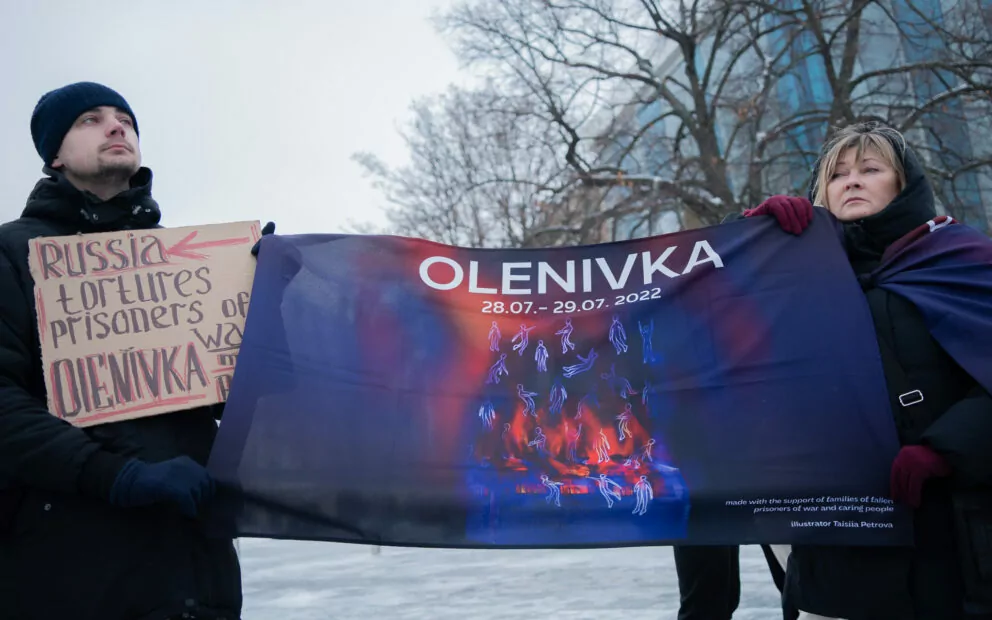
Iryna, a relative of a captured Azov, spoke to journalists. According to her, the nephew has been in Russian captivity since May 2022. Unfortunately, she has no information about his condition.
“I’m an aunt, I have two nephews who are Azov soldiers. The older one, Serhiy, died at Azovstal, and the younger one is in captivity and he was injured in Olenivka, he survived but was wounded. Now we don’t know where he is, only Russia has confirmed that he is in captivity, that’s all. There has been no information since the attack in Olenivka. We just hope that he is alive, we are sure of it,” says the participant of the action.
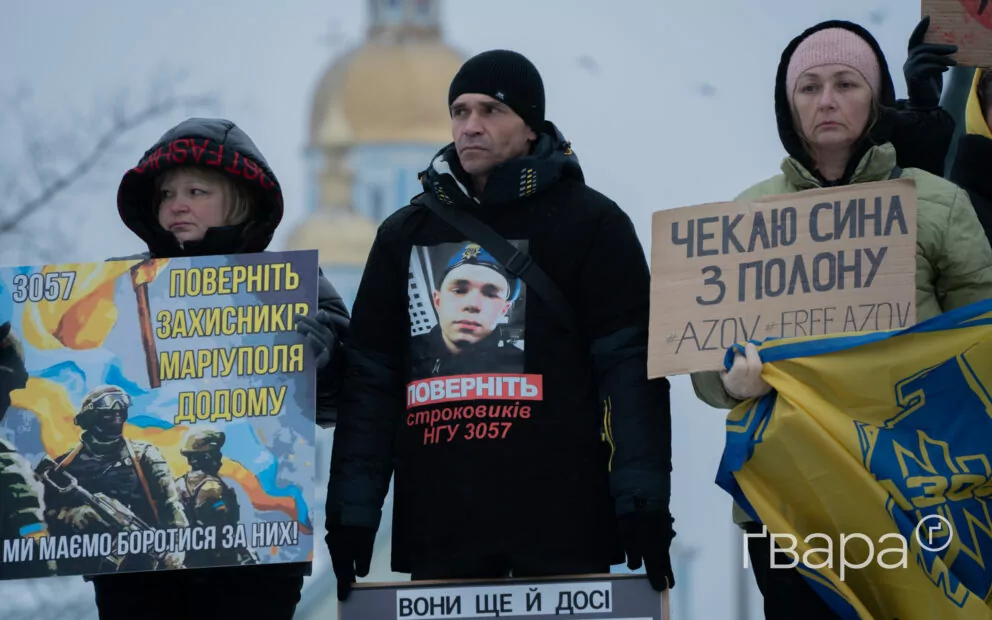
Read also: Year in captivity: Kyiv Held rally to commemorate release of Azovstal defenders
Between 16 and 20 May 2022, following orders from the leadership, soldiers and civilians left the territory of the plant, which was the last stronghold of Ukrainian forces in Mariupol. 2,439 people have left the plant, but more than 1,900 of them are still in captivity.
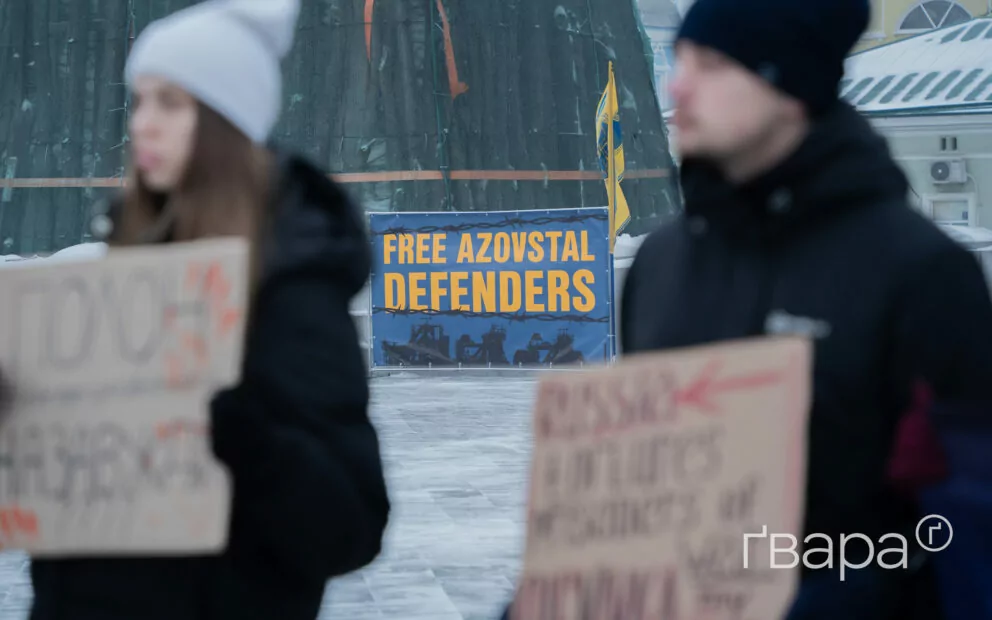
At the time, the Ukrainian authorities were careful to use the term “evacuation”, while Russia claimed it was a surrender. People were transported to Russian-controlled territories and most of them are still there.
Some of Ukraine’s defenders have already returned home, however, more than 1,900 remain in captivity, including about 700 members of the Azov regiment.
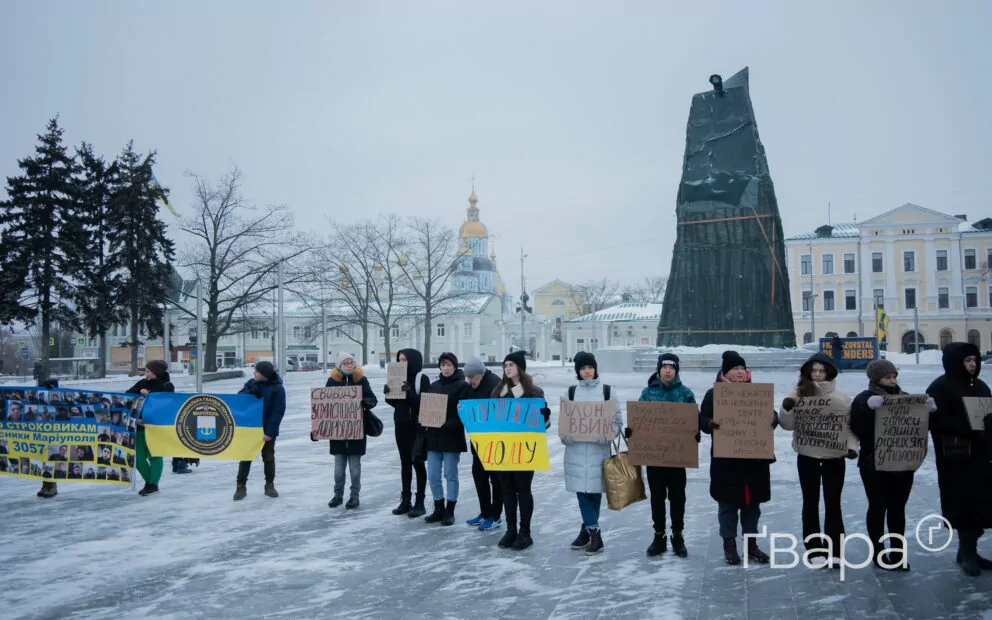
The siege of Mariupol began on 24 February 2022 and lasted until 20 May, as part of the Russian invasion of Ukraine. During the Russian siege, the Red Cross described the situation in Mariupol as “apocalyptic” while Ukrainian authorities accused Russia of engineering a major humanitarian crisis in the city.
Ukrainian officials reported that approximately 25,000 civilians had been killed and that at least 95% of the city had been destroyed during the fighting, primarily by large-scale Russian bombardments.
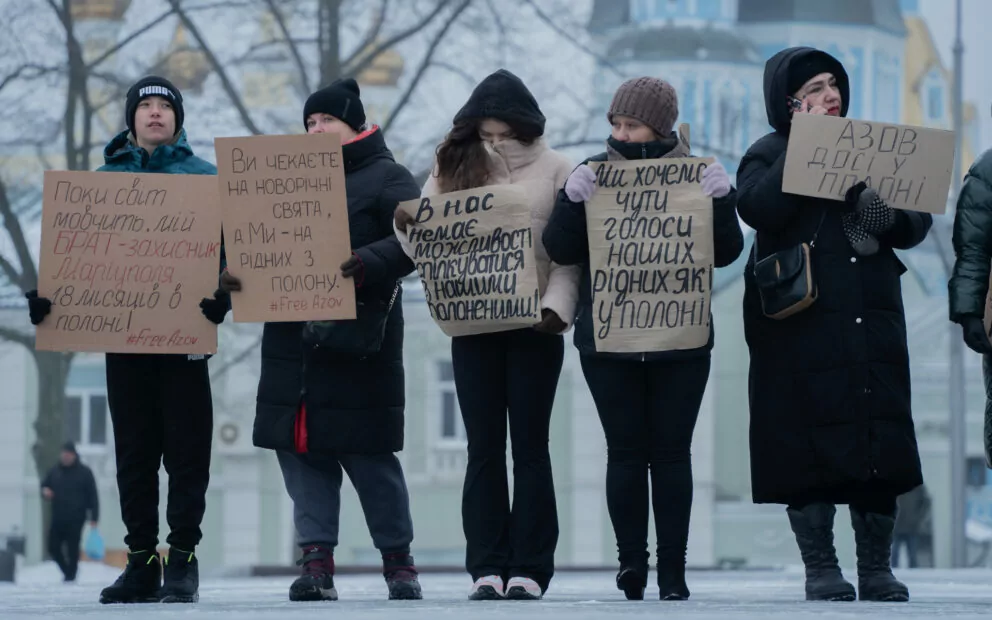
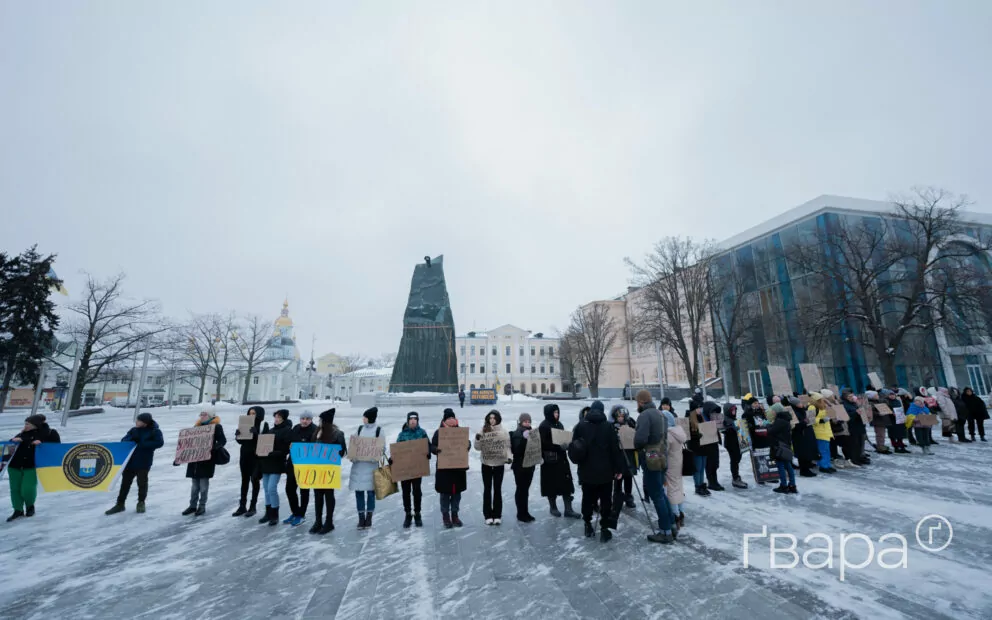
More from Gwara
Russia has stopped exchanges of prisoners of war in an attempt to create an impression of inaction in the society, said Petro Yatsenko, a representative of the Coordination Headquarters for Prisoners of War.
